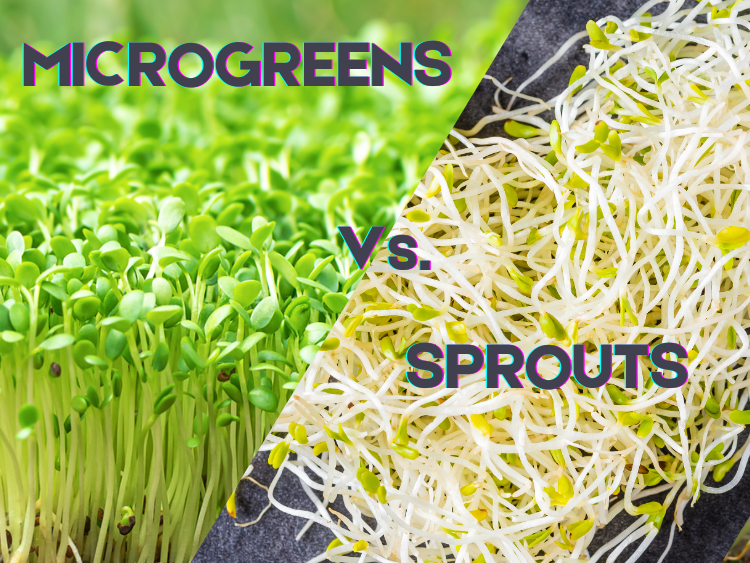Why Do You Have to Rinse Sprouts 2-3 Times a Day but Not Microgreens?
When growing sprouts and microgreens, you may notice a key difference in their care: sprouts need to be rinsed 2-3 times a day, while microgreens do not. But why is that? The answer lies in their growing methods, moisture needs, and bacterial risk. Let's dive into the science behind this difference and how you can ensure safe and successful growth.
1. Growing Environment
Sprouts and microgreens grow in very different conditions, which impacts their care routine:
- Sprouts are grown in moist, enclosed environments like jars or sprouting trays, often without soil. This high-humidity setting encourages rapid germination but also creates a breeding ground for bacteria.
- Microgreens are grown in soil or hydroponic media with access to light and airflow, reducing excess moisture and making them less prone to bacterial contamination.
2. Hydration & Oxygen Needs
Since sprouts rely entirely on water for hydration and lack soil nutrients, frequent rinsing is necessary to:
- Keep them hydrated throughout their 4-6 day growing period.
- Provide fresh oxygen by flushing out stagnant water.
- Prevent mold and bacterial buildup due to standing moisture.
Microgreens, on the other hand, have roots that absorb water from soil or hydroponic mats. Since they have a longer growth cycle of 7-14 days, they do not require frequent rinsing—only consistent watering from the soil or tray.
3. Bacterial Growth & Safety Concerns
Because sprouts grow in a closed, damp environment, they are more susceptible to bacterial growth, including Salmonella and E. coli. Rinsing them multiple times a day helps:
- Remove any potential contaminants.
- Prevent slimy or foul-smelling sprouts.
- Keep them fresh and safe for consumption.
Microgreens, in contrast, grow above the soil in open air, where natural airflow reduces bacterial risk. They only need to be washed once before eating.
4. Airflow & Space Considerations
- Sprouts are densely packed in a container with little airflow, increasing the need for rinsing.
- Microgreens grow spaced apart with natural air circulation, reducing the chances of bacterial growth and excess moisture buildup.
Conclusion
The main reason sprouts require frequent rinsing while microgreens do not is due to their moisture levels, growing conditions, and bacterial risks. Since sprouts grow in an enclosed, damp environment, they need constant rinsing to stay fresh and safe. Microgreens, however, benefit from airflow and soil-based growth, making rinsing unnecessary until harvest.
Want to Start Growing Your Own Sprouts & Microgreens?
Visit ZestiGreens.com for premium-quality microgreens and sprouting seeds, expert tips, and the best growing supplies to help you cultivate fresh, nutrient-packed greens at home!









